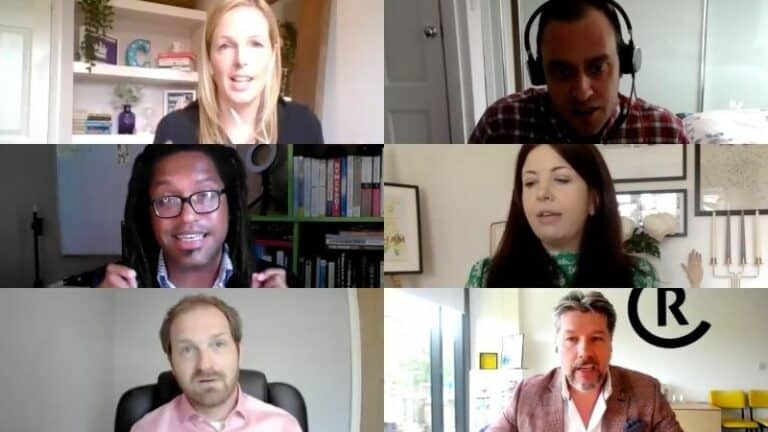A variety of industry leaders in the marketing world came together for the ‘Road to a More Inclusive and Diverse Marketing Agency’ webinar, hosted on Thursday June 24th, to reflect on how the marketing industry can be more inclusive and attract, and retain, more diverse candidates.
In collaboration with Prolific North, the webinar concludes conversations from the ‘Diversity Matters’ podcast series, in which webinar host Rosie MacPhail, Senior Agency Recruiter at Better Placed, spoke with panellists on the topic.
Chair:
- Rosie MacPhail, Senior Agency Recruiter, Better Placed
Attendees:
- Sarah Latham, Operations Director, Six & Flow
- Richard George, Managing Partner, Wavemaker
- Ian Lenehan, Recruitment Manager, McCann Manchester
- Catherine Garrod, Founder, Compelling Culture
- Rob Shaw, CEO, CreativeRace
- Dan Sodergren, Co-founder, Your FLOCK
Recruitment and retention
The panel opened up the discussion by addressing recruitment and retention of diverse candidates in the marketing world and debated the issues surrounding the topic.
A “very small talent pool” is a key issue for many agencies in a post-lockdown world where individuals are opting for different career paths, said Rob Shaw of Leeds-based integrated agency CreativeRace.
However, as we are now living in a “global marketplace”, Dan Sodergren of digital coaching startup Your FLOCK, pointed to a wider pool of candidates now available due to opportunities with remote working.
Marketing agencies need to extend recruiting outside of a “30 mile radius” as diversity and inclusion is going to become easier in a global marketplace, he added.
The recruitment process needs to be refined, to combat a “natural tendency to think straight away about people you already know or colleagues already know, rush them in, interview them, and straight away you’ve reduced the opportunity for a wider pool of candidates to apply,” Ian Lenehan, of marketing agency McCann Manchester, said.
Trying to find a balance when replacing an existing employee who is leaving can seem difficult to achieve as “client expectations don’t pause” but allowing more time for a broader group of candidates to apply means you’re more likely to attract those from diverse backgrounds, he added.
For Richard George, of global media agency Wavemaker, change starts in the form of reviewing and changing the recruitment policy – from changing the entry requirements to looking at recruiting from different sources.
He agreed with Shaw, and added the Covid pandemic has caused an acceleration in the number of brands now desiring candidates with digital experience, but he said as the skill is in high demand “there is simply not the depth of talent pool, let alone diversity.”
By creating recruitment programmes and working with schools and on initiatives like apprenticeships, he said it will encourage junior talent from diverse backgrounds which will have an impact in the long-term on diversity representation at a senior level.
Catherine Garrod, of Compelling Culture, which helps organisations with inclusion and diversity, highlighted that many organisations “rushed to act before really listening and educating” in the wake of George Floyd’s murder last year but said the industry should put as much emphasis into retention as recruitment.
She said to do this requires removing the barriers set up in an organisation that were “intentionally exclusive” at the time.
There is no “magic bullet”, Lenehan noted, but mentioned the various methods McCann is trialing in their recruitment process including “blind hiring” – which includes removing identifying factors from an application such as ethnicity – and introducing an assessment stage before interviews to assess skill-set rather than the right degree course.
He added that it takes time to get processes right and agencies need to trial lots of processes along the way. The agency is working on shifting its approach towards selling why a career in the marketing industry is worthwhile to more than marketing graduates.
The agency is supportive of apprenticeships and the government Kickstart scheme, which provides funding to create new job placements for 16-24-year-olds on Universal Credit, he said, adding that 80 new starters are set to join McCann from the Kickstart scheme in roles across the UK within the next few weeks.
On utilising apprenticeships and the government’s Kickstart scheme, Sodergren said “there is a great opportunity there where we can tap into a diverse crowd that’s already there.”













